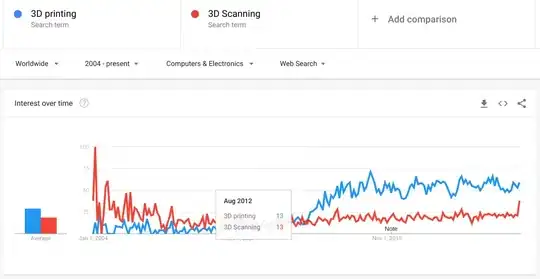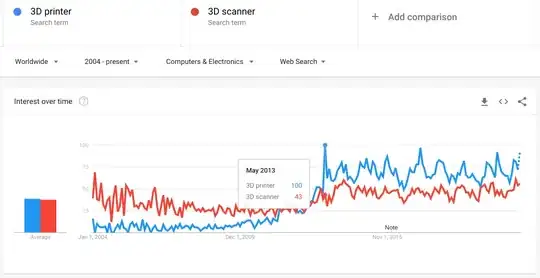Comparing trends show that 3D printing stepped over to another level around 2012~2013. Why?
Asked
Active
Viewed 1,385 times
2 Answers
15
A great story on the history of 3D printing is published by 3DSOURCED. It shows that the patents for FDM and SLA expired a few years earlier and the RepRap 3D printer self replicating project became very popular. Also, 3D printer manufacturers emerged and electronics, software and parts became available at a larger scale, so that it was more affordable for a hobbyist to dive in.
0scar
- 32,029
- 10
- 59
- 135
-
1Could the same happen to 3D scan field? I mean, regarding patents for example. – user3405291 Mar 06 '21 at 13:57
-
2once the patents run out, possibly, but I don't think to the degree of 3D Printers, as there is less "fun" application in scanners - and sharing scanned items might come with a legal backlash that sharing self-made designs might not because you much easier violate copyright. – Trish Mar 06 '21 at 14:52
-
2It’s not even just fewer ‘fun’ applications for a 3D scanner, there are arguably fewer practical applications as well. 3D printing slots into the usual engineering development loop rather nicely as a way to speed up prototyping, and that’s a large part of what helped make it so generically popular, but 3D scanning is far less universally useful in such a setting. – Austin Hemmelgarn Mar 07 '21 at 15:48
-
2History, Anthropology and Archaeology use 3D scanners, merged with 3D model generation it slots in nicely there (as in re-creating damaged artifacts etc) – Trish Mar 25 '21 at 07:34
0
Another opinion received:
That’s the result of MakerBot and others promoting the tech to the general public for the first time after the patents expired. They were just running up stock prices to make a lot of money
user3405291
- 151
- 5

